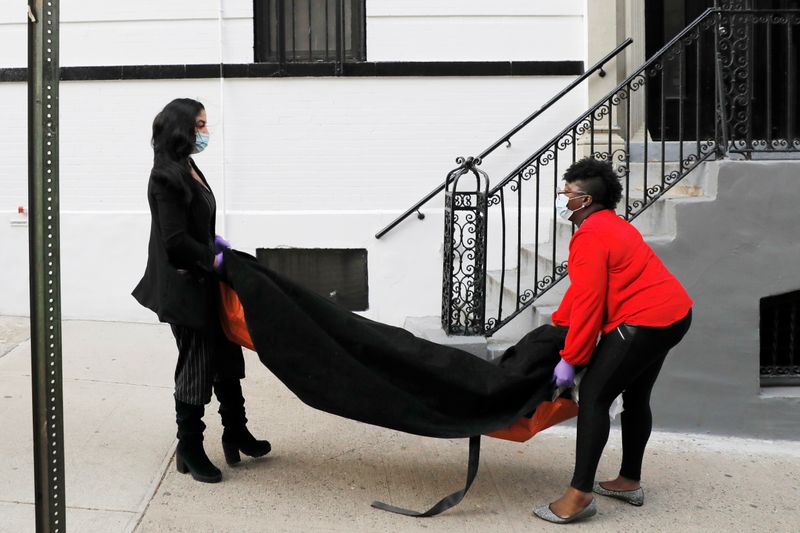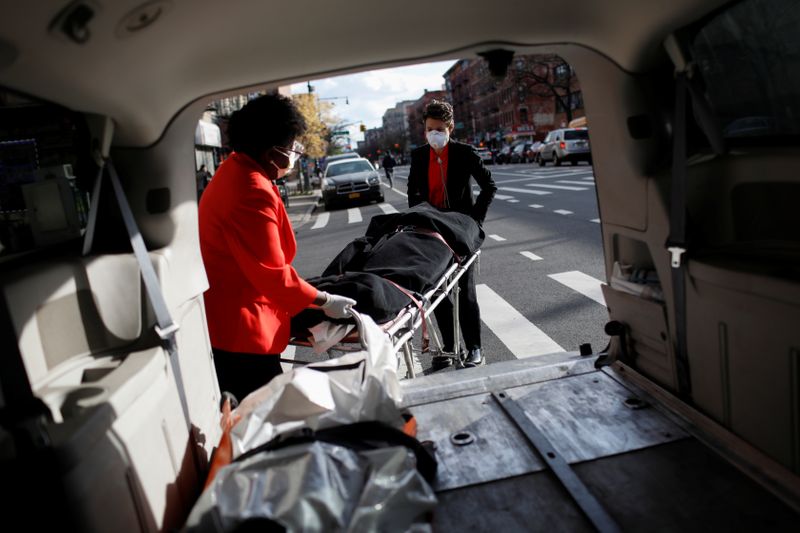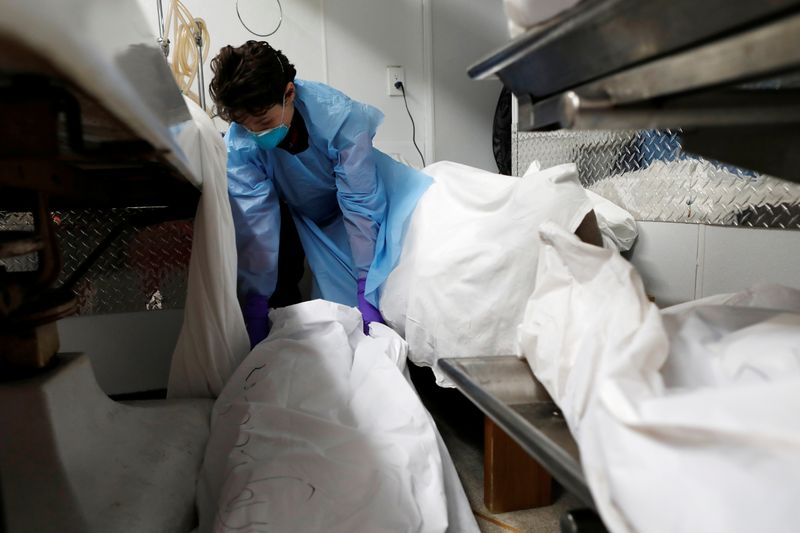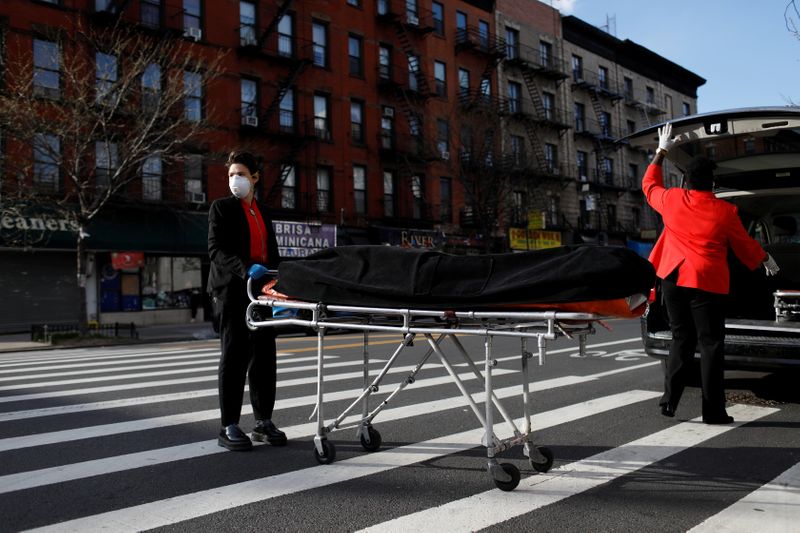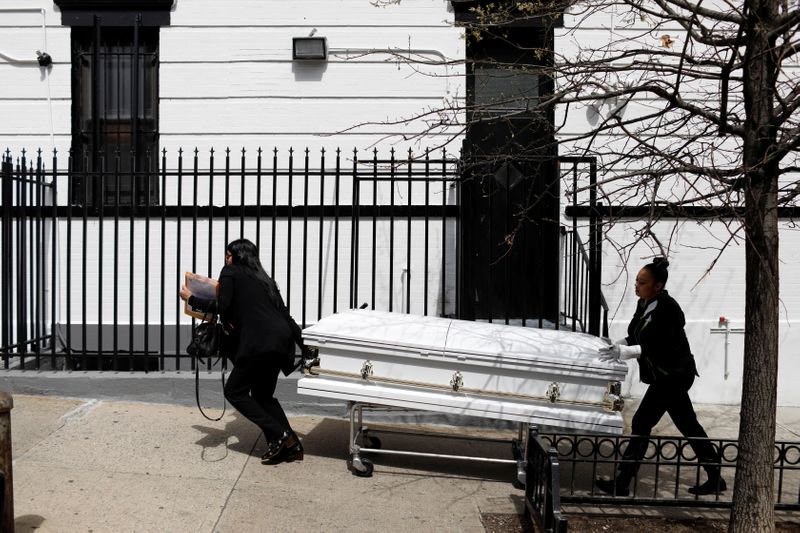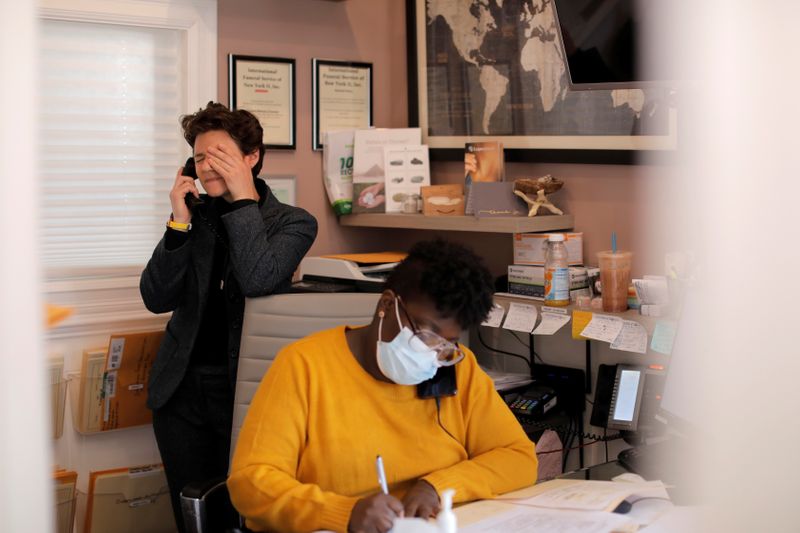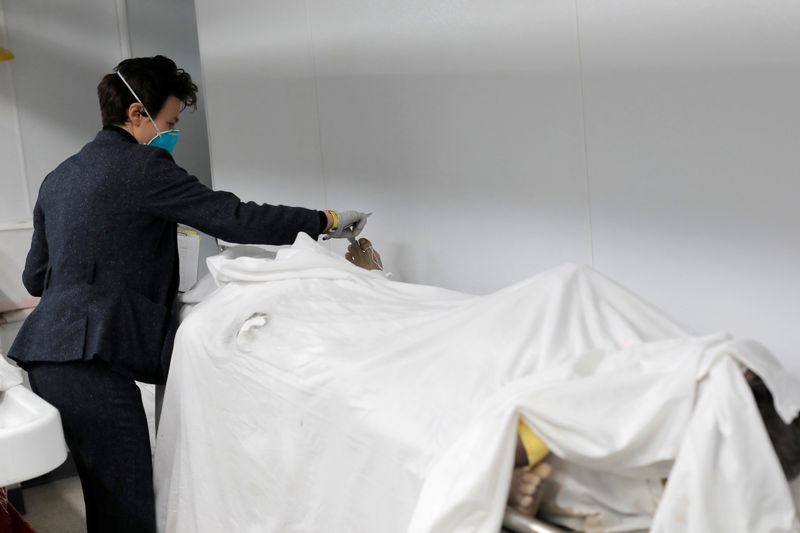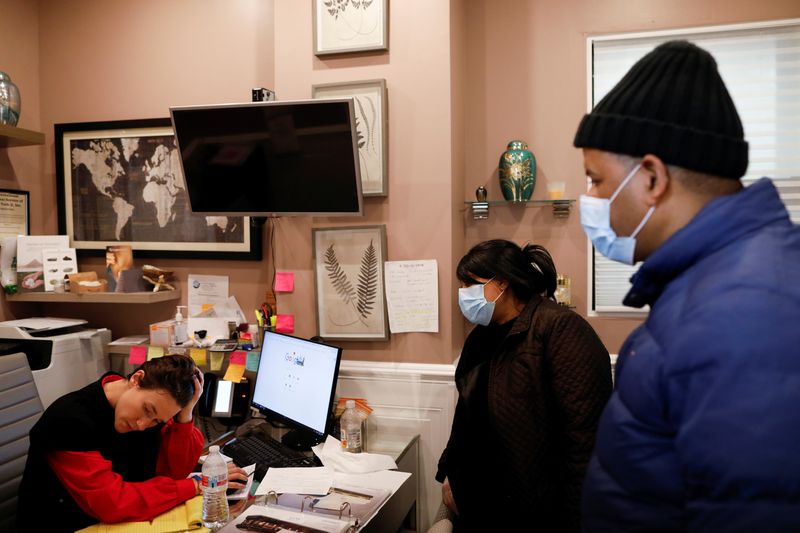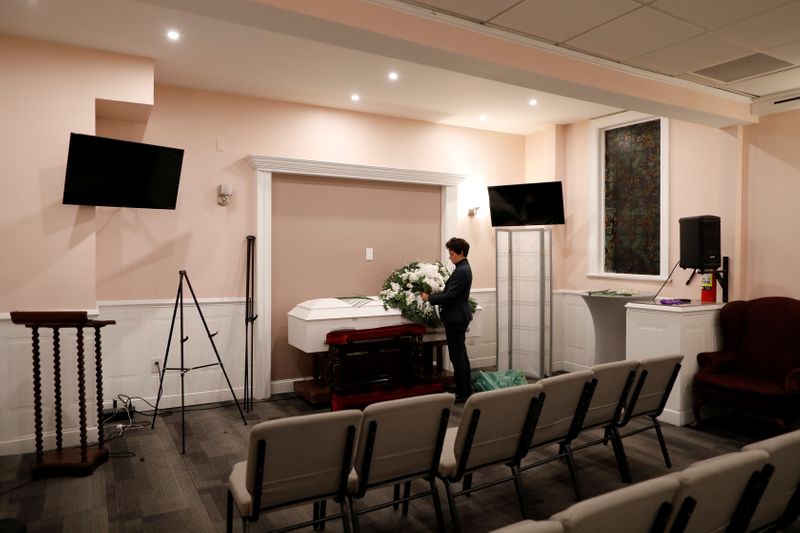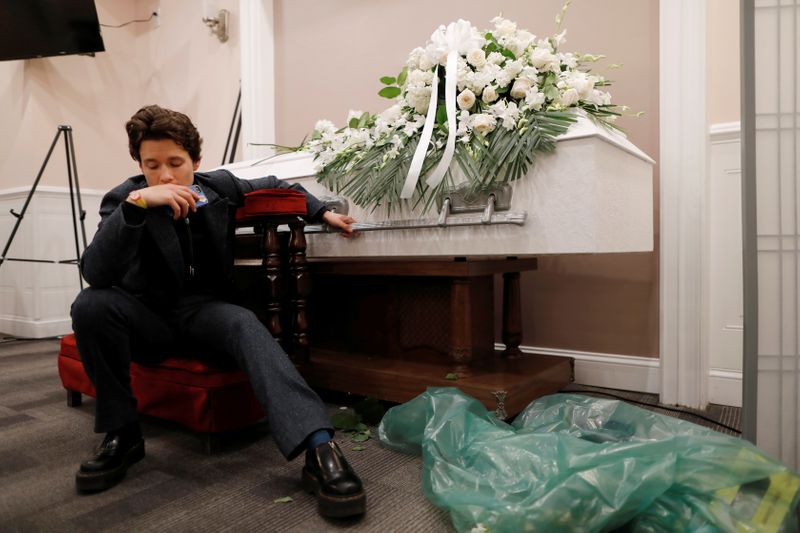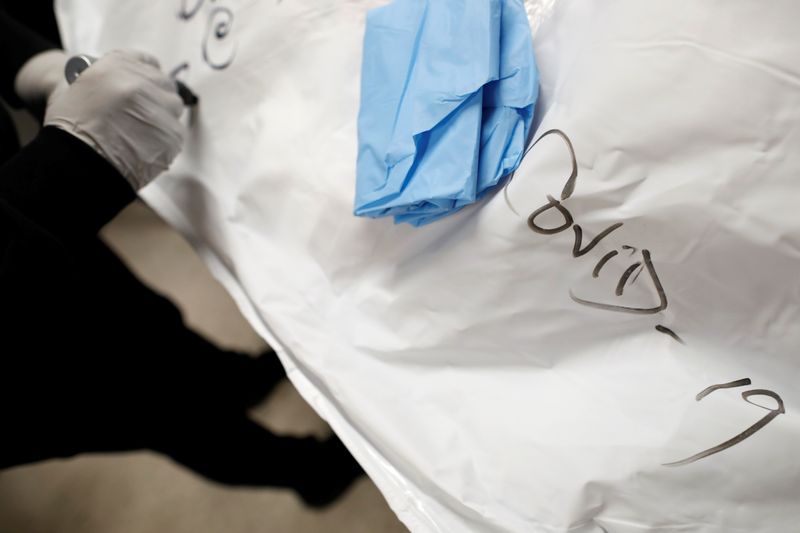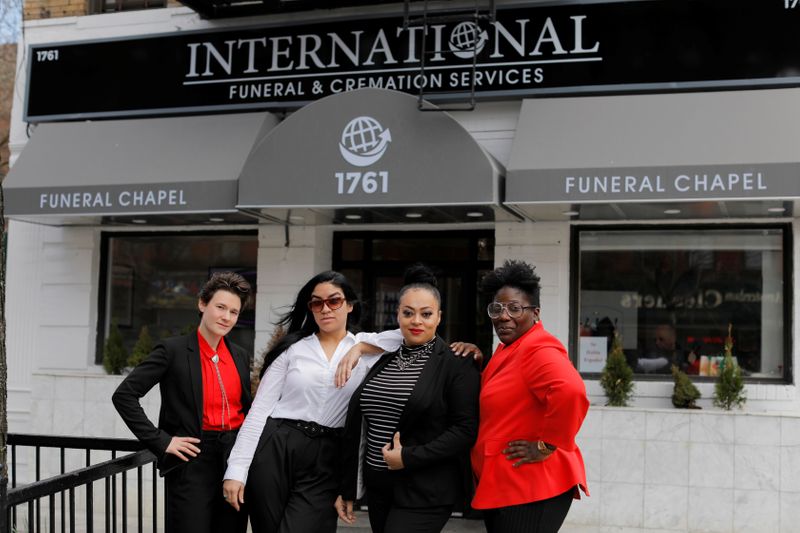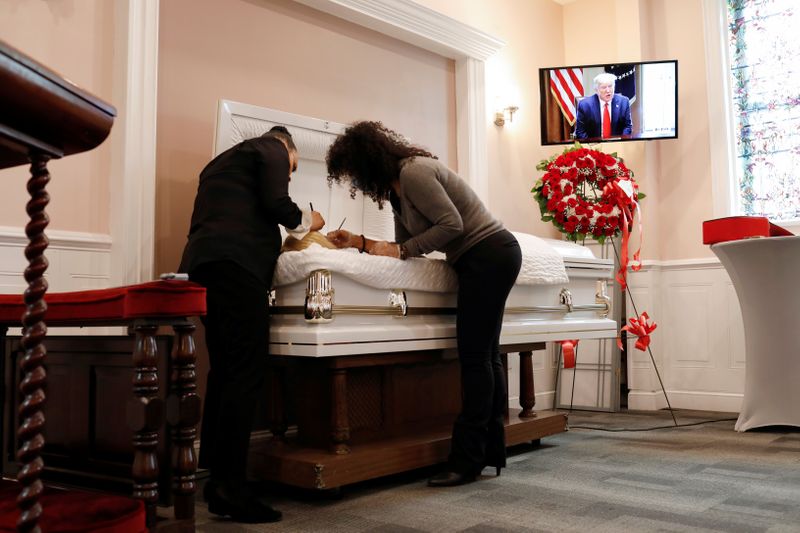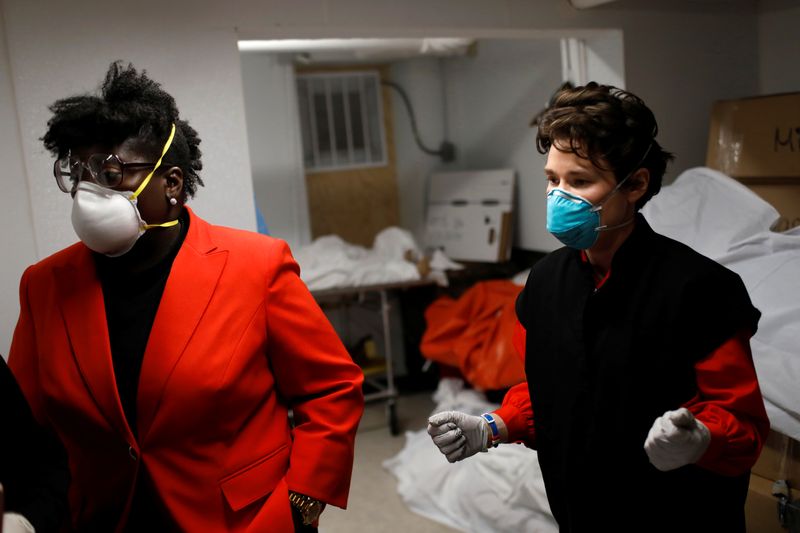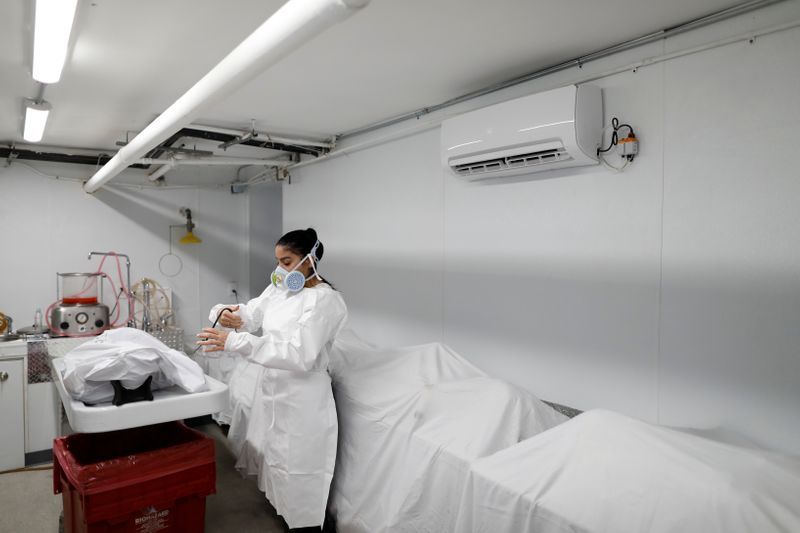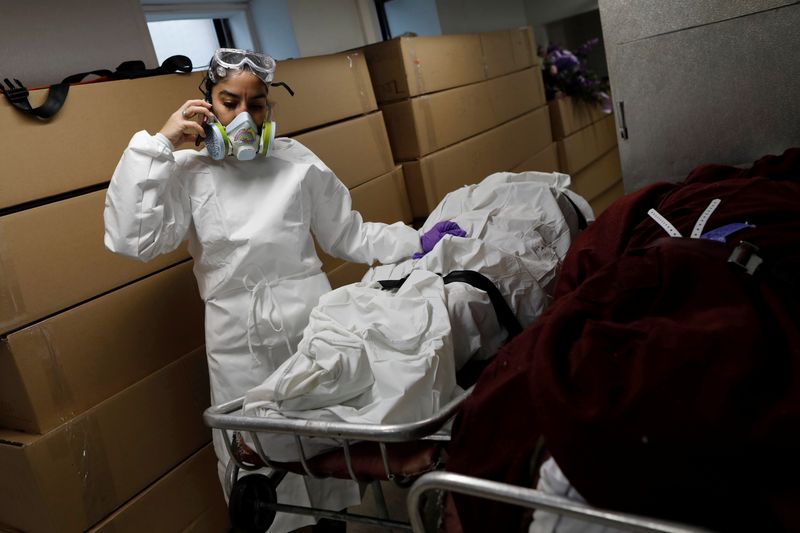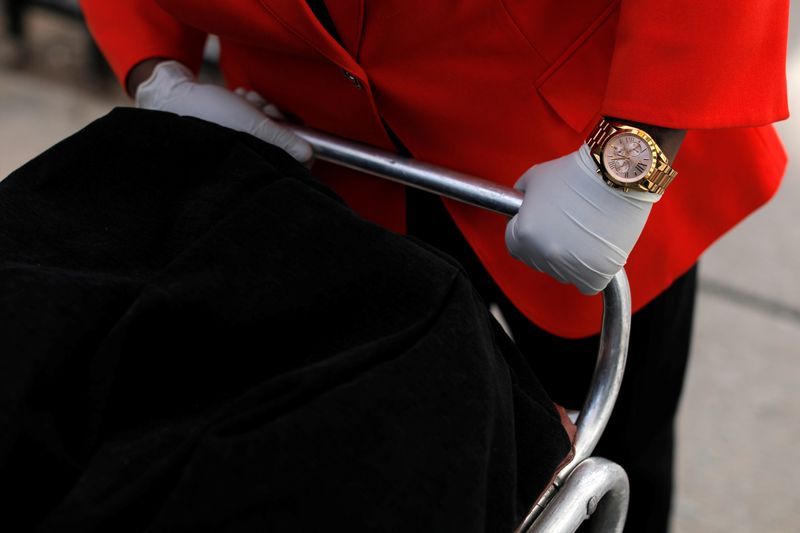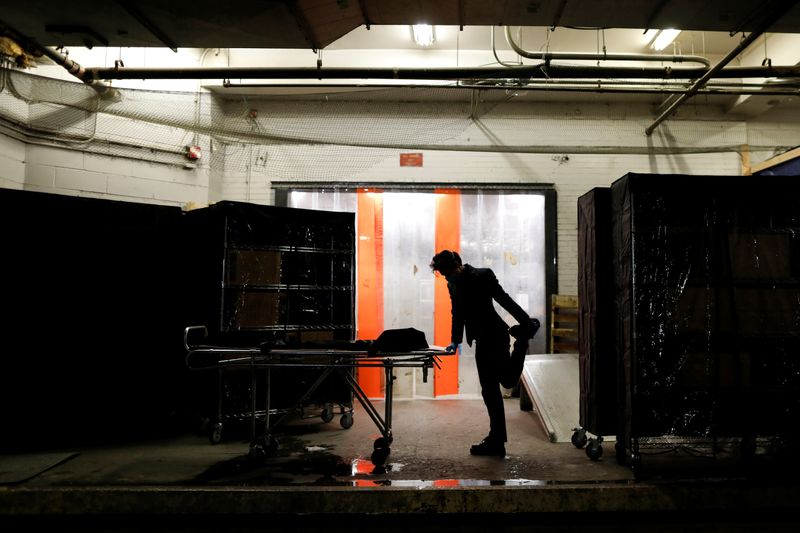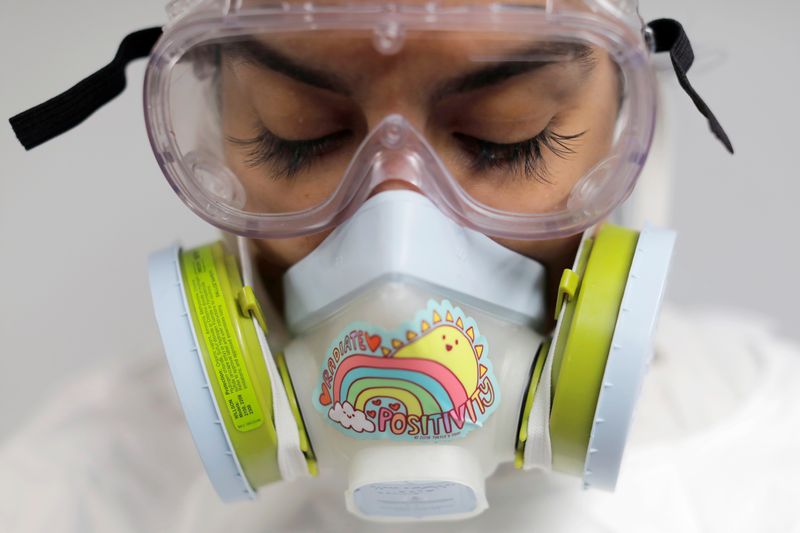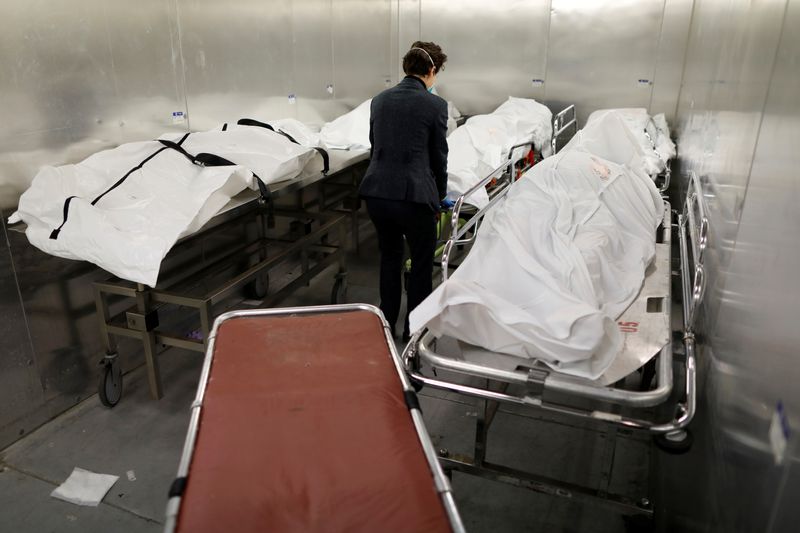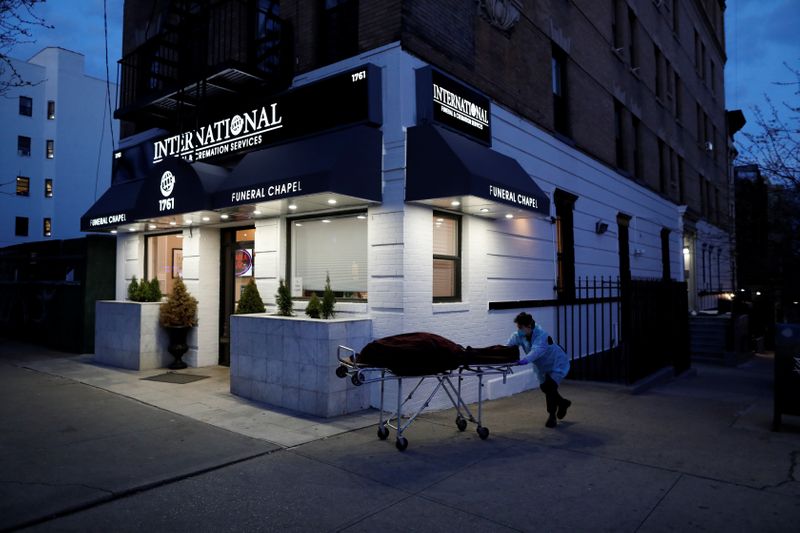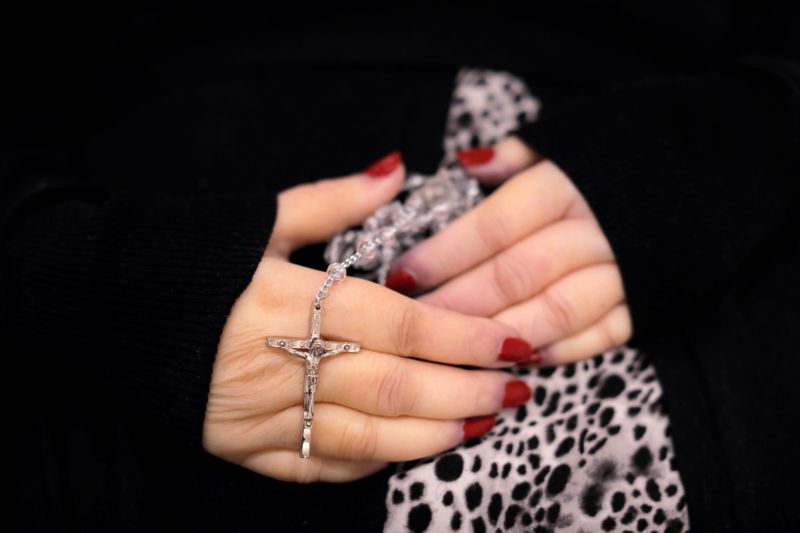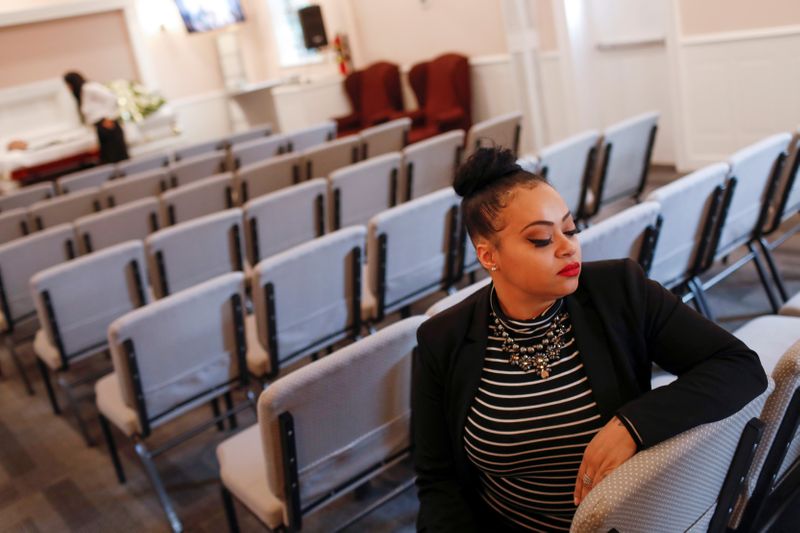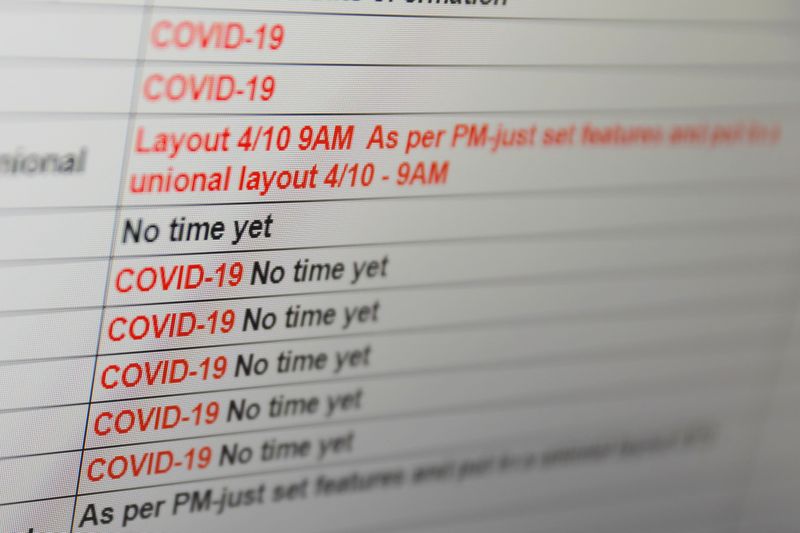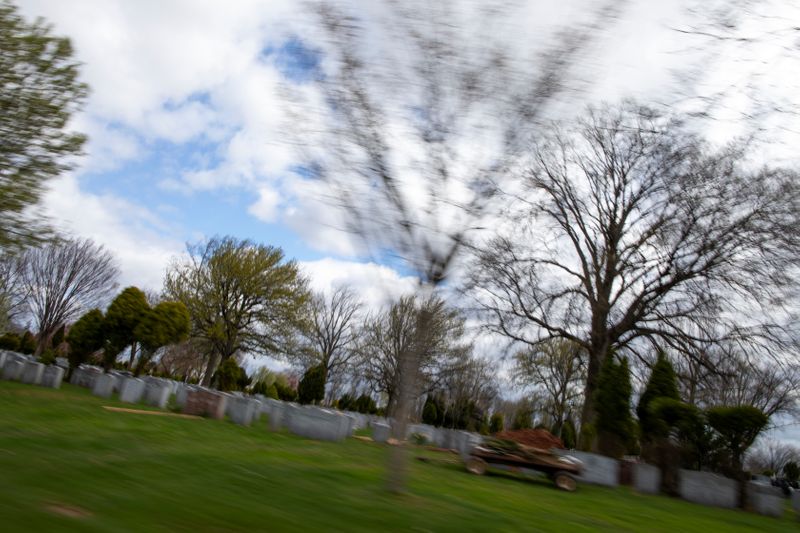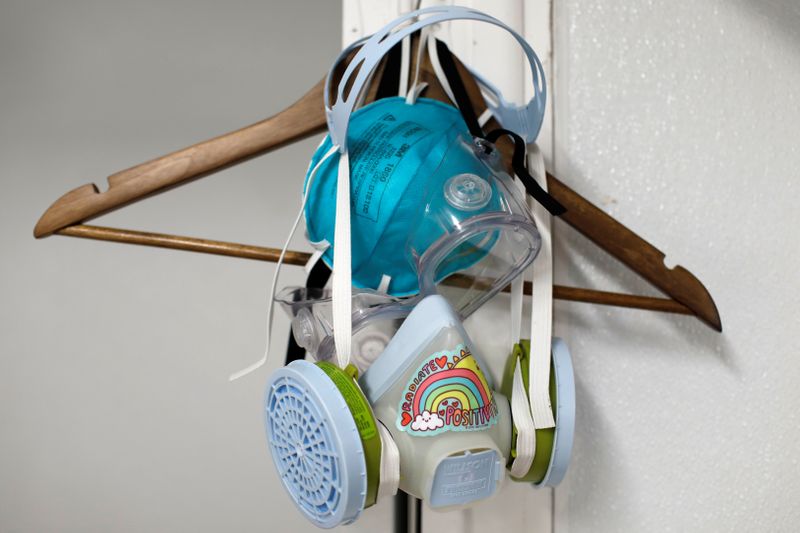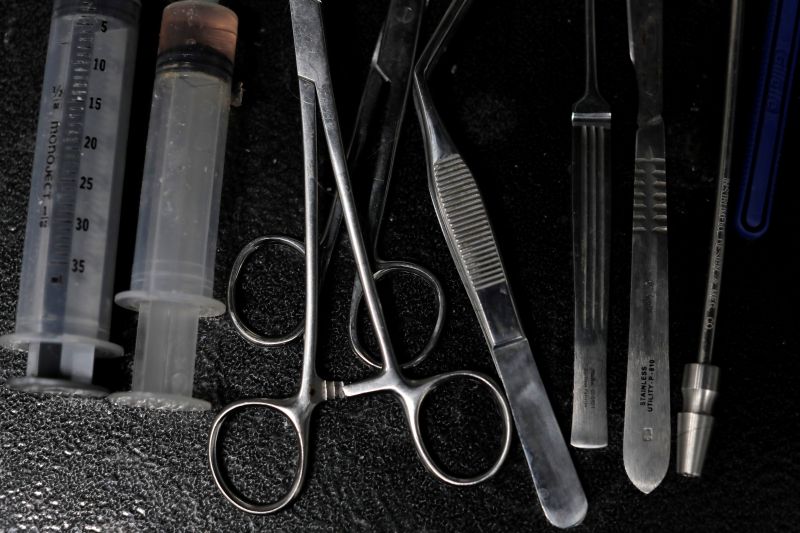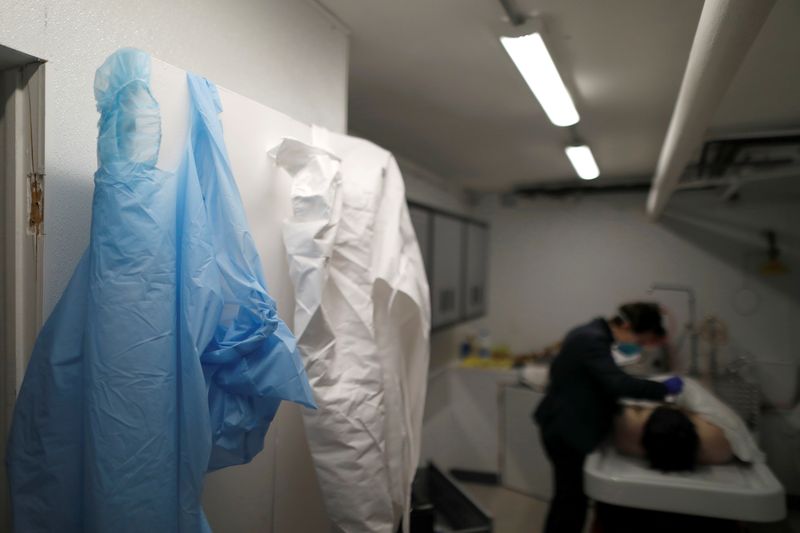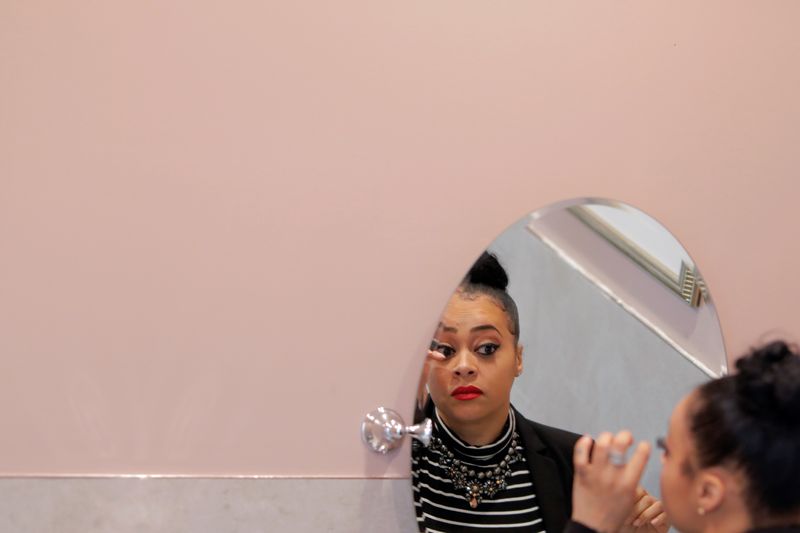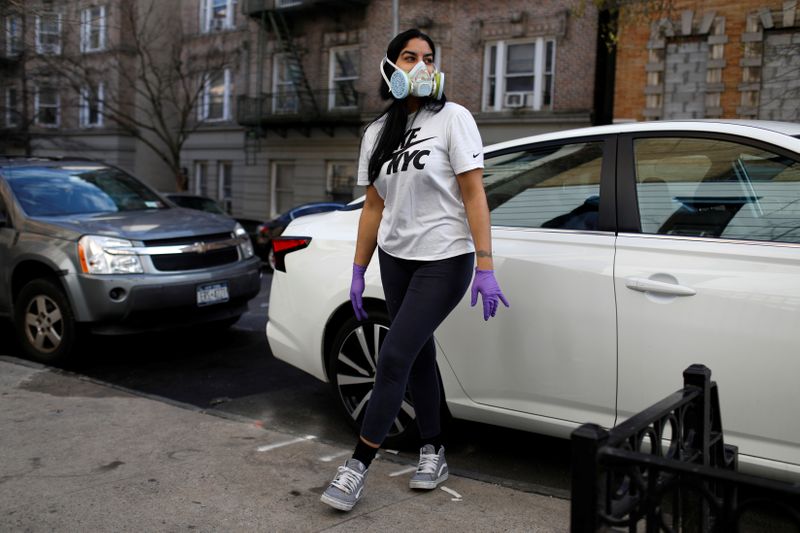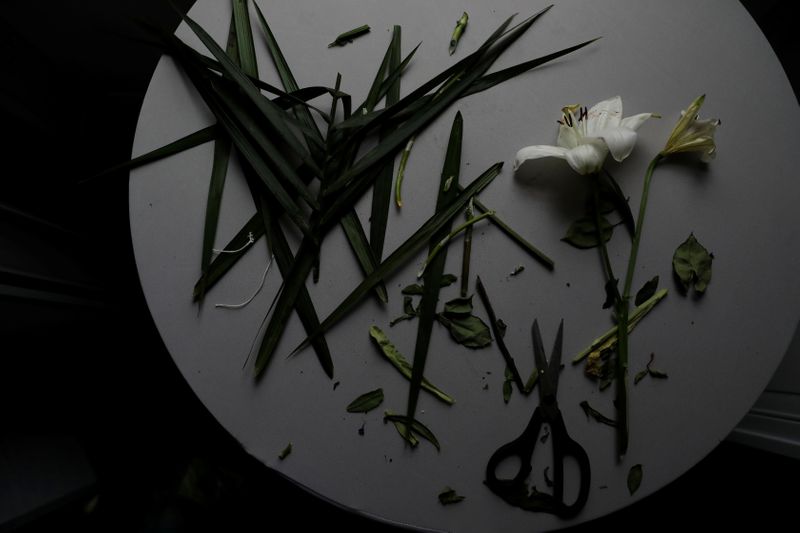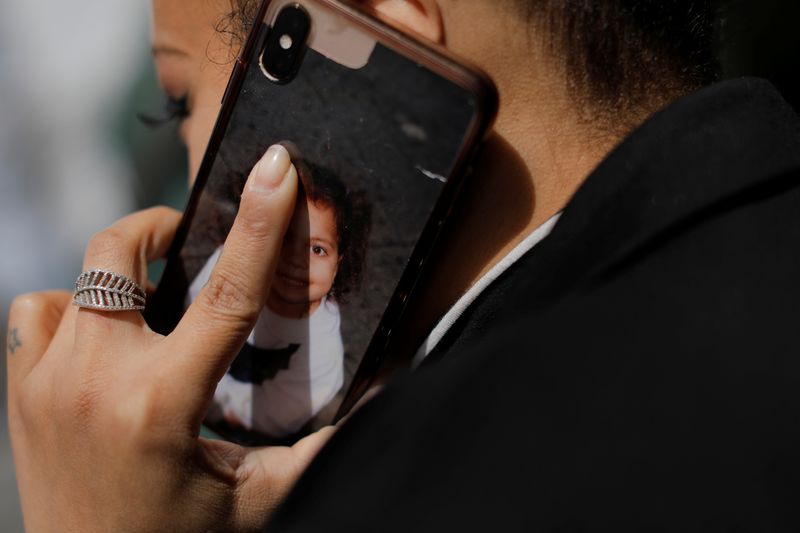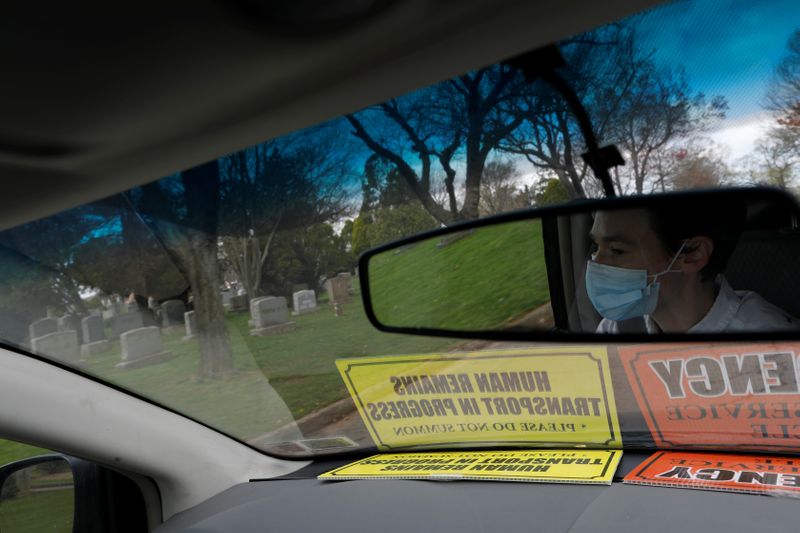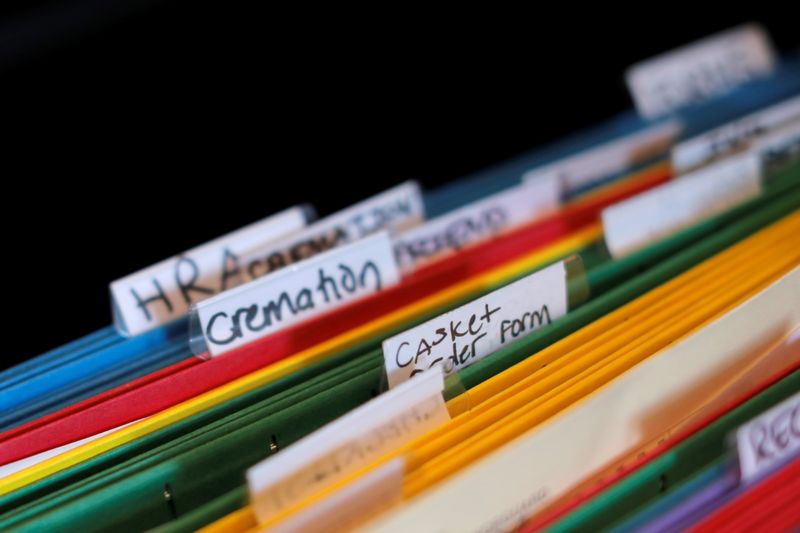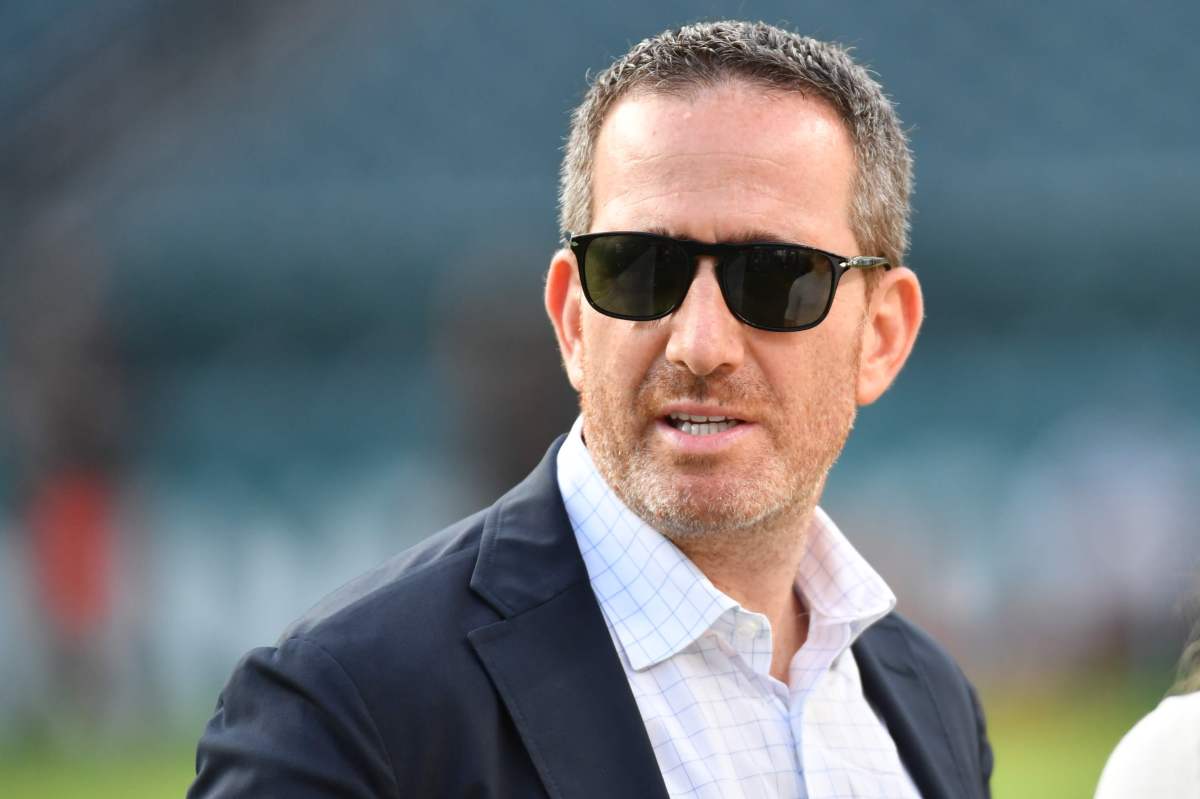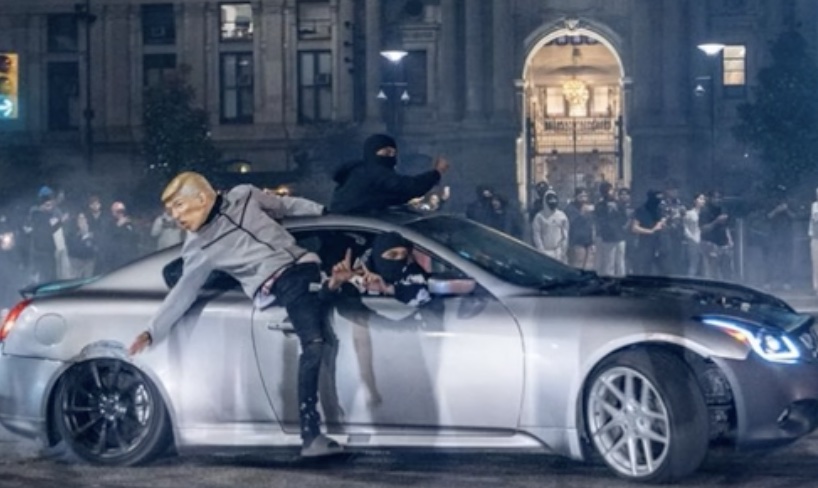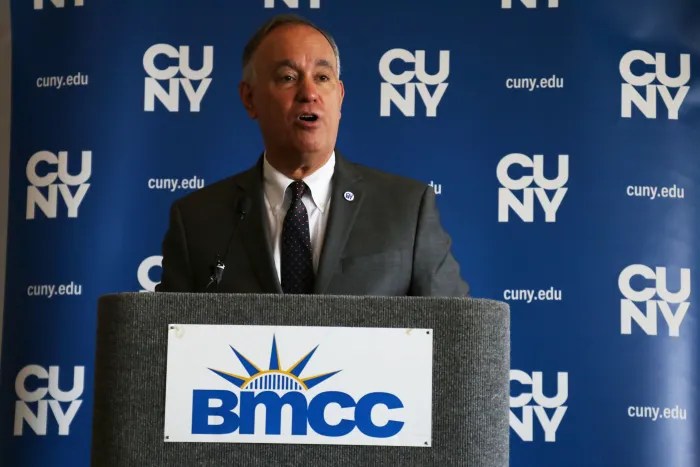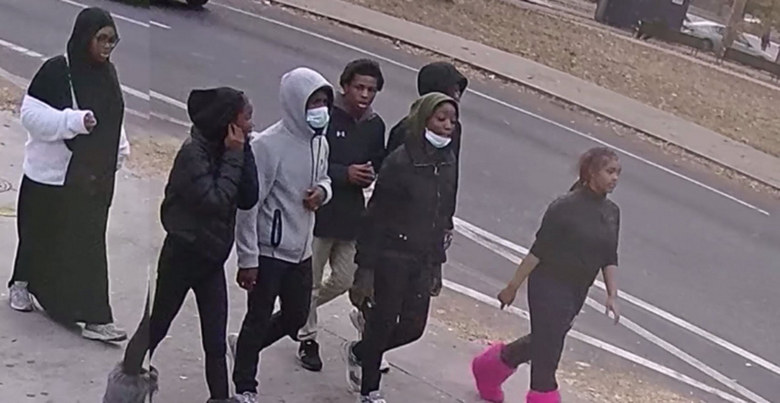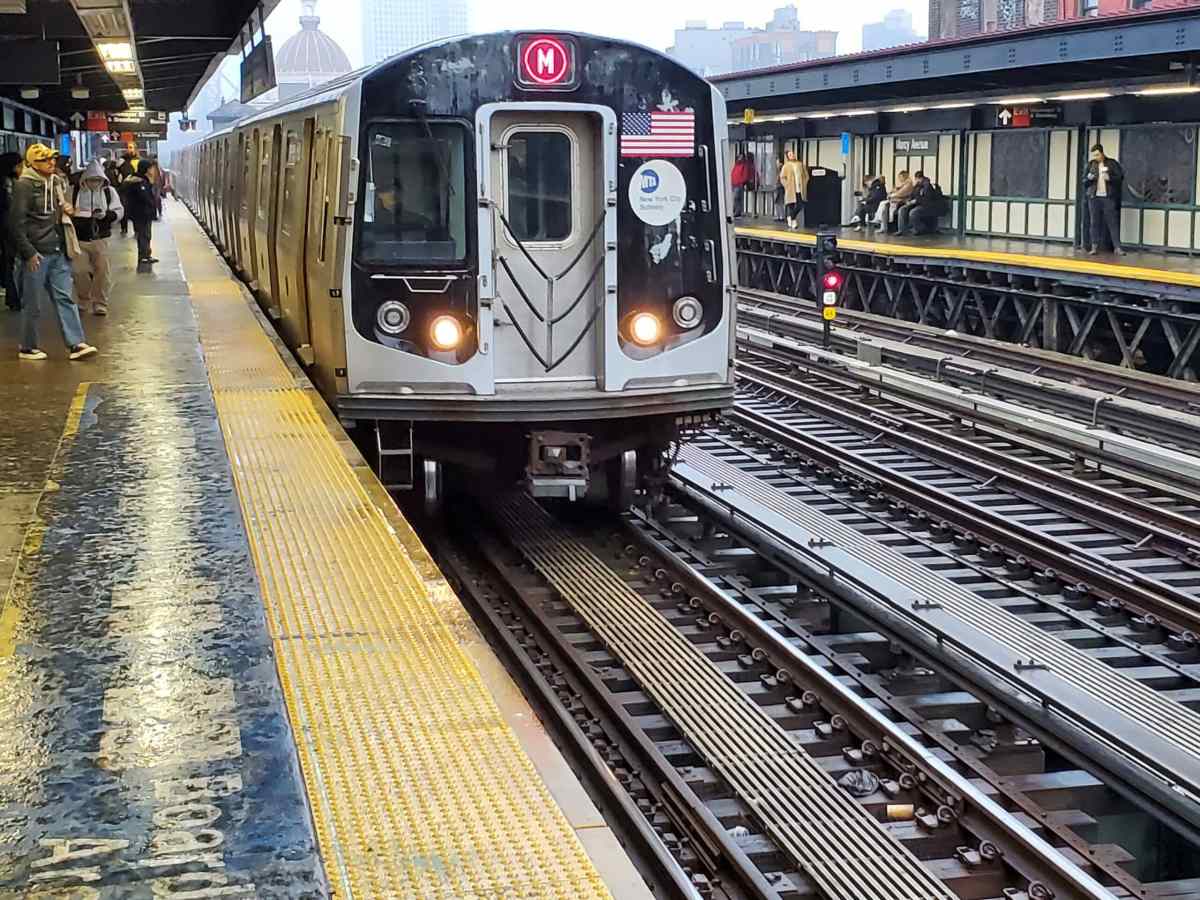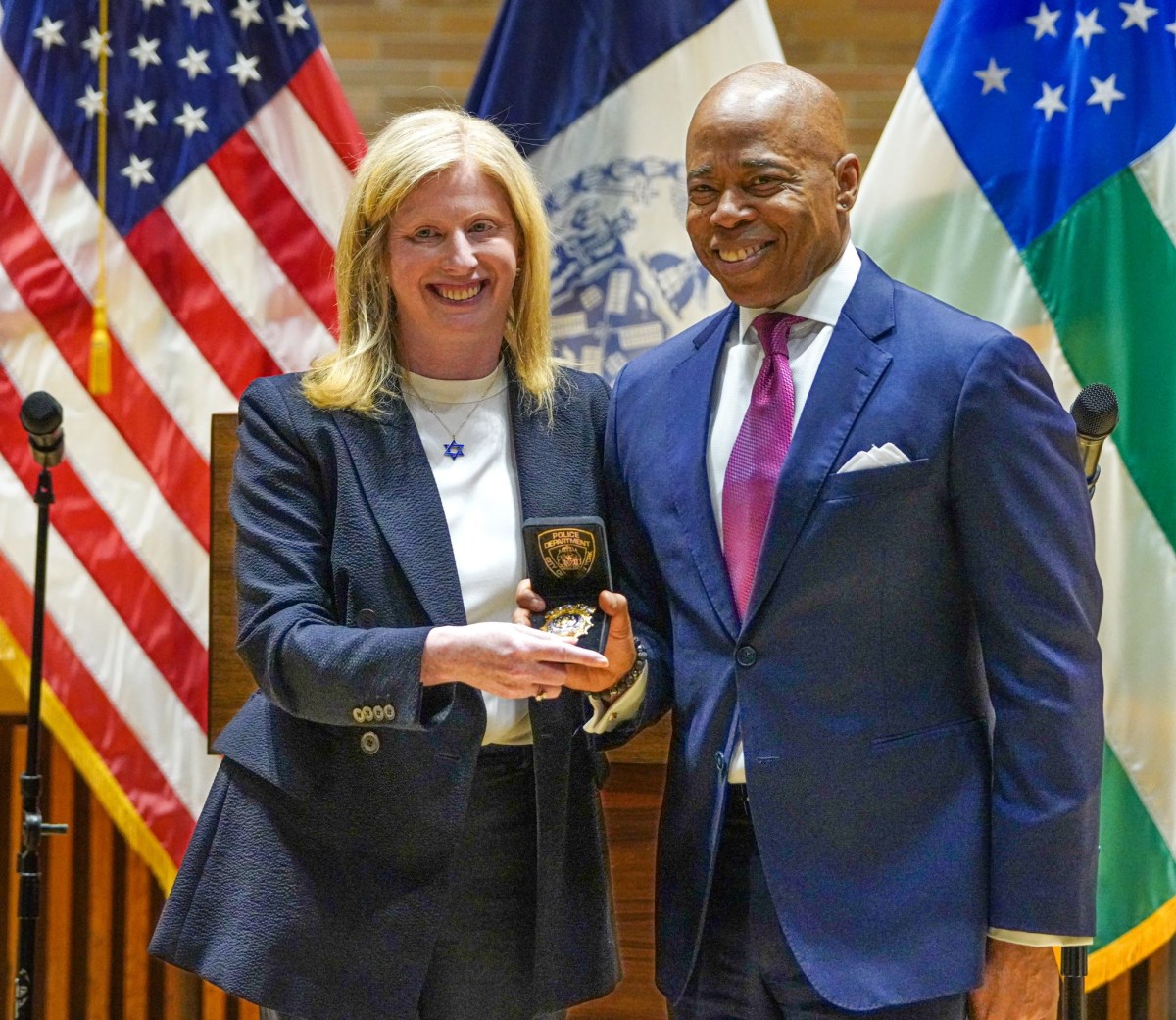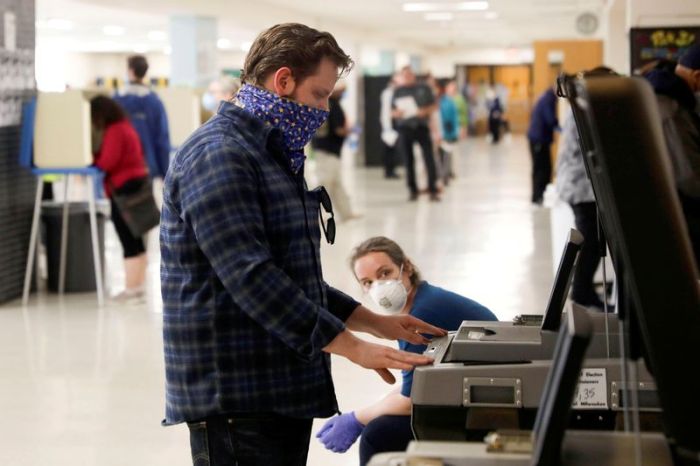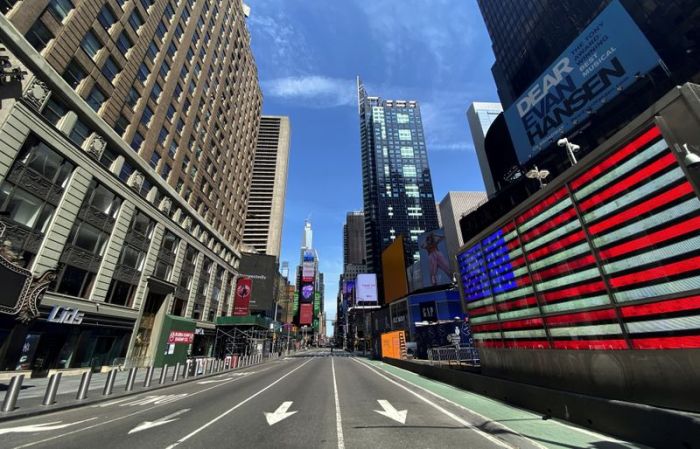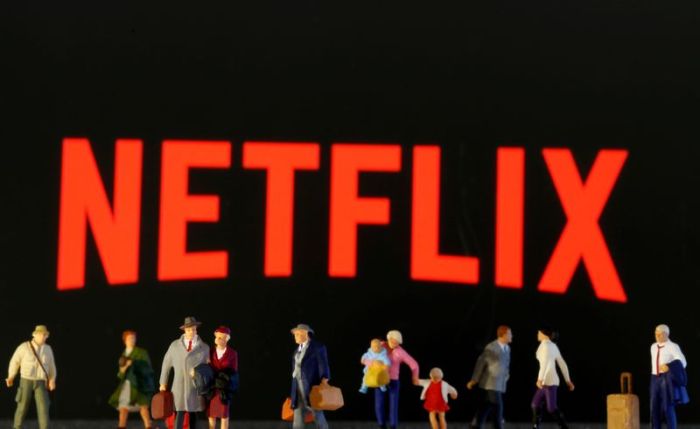NEW YORK (Reuters) – There are 48 bodies in the basement of the funeral home in Harlem. Forty are in cardboard boxes, ready for cremation. The other eight are in the refrigerator, to be embalmed and buried. It will be weeks or months before they get either.
As health officials began burying COVID-19 victims in a mass grave on Hart Island during New York’s worst week of death, the four female undertakers at the International Funeral & Cremation Service started turning bodies away.
This band of women morticians in heeled boots began to feel like they were failing. The way they see it, a person should get what they want in death, even if that was never possible in life.
“That’s our thing,” says Lily Sage Weinrieb. “You want six limos and you want them painted pink? Yes. Now, we’re like: you want a cremation? I’m sorry, no. You want a burial and you already have a plot and everything? Sorry, no. We don’t have any room.”
“We’re being told that we’re heroes for being on the front lines of this but I feel like I’m failing families every day.”
On the front lines of the coronavirus pandemic, nurses and doctors are caring for the living. But there is another front line of those caring for the dead. They fear they can also get infected and die. Some of them have sent their own children to live with relatives. And because American cities like New York were never designed to dispose of so many dead, their call of duty will last much longer.
SINGLE MOMS AND DAUGHTERS
At the beginning of the pandemic, Alisha Narvaez, 36, sent her 17-year-old daughter to live with her twin sister, but after two weeks the distance was too much. “It’s always just been me and her and she wanted to come home,” says Alisha.
Alisha showers at the funeral home after embalmings and before going home, then removes all of her clothes in the hallway and showers again when she gets home. She sprays her bag with Lysol and rinses her mouth out with Listerine.
“I gotta make sure I keep healthy just not to harm her,” says Alisha. “Although she’s been in quarantine for several weeks, every day I come home from work is Day Zero for her.”
Jenny Adames sent her daughter to live with her mother. She recently caught herself snapping at her in a text exchange.
“Today kind of broke my heart,” says Jenny, 36. “She needs her mom. She don’t need Jenny the funeral director.”
Nicole Warring, 33, worries about dying, or infecting her 10-year-old son. Her boyfriend who works for the casket company got the virus. Fortunately, he recovered. She was off of work for a week for heart palpitations from anxiety.
“It’s traumatizing for everyone,” she says. “No mortuary school can prepare you for what we’re seeing now.”
Lily moved out of a shared house with friends in Philadelphia because she didn’t think it was right to constantly expose her housemates to the virus. Her parents let her move home but she says no one has hugged her for more than a month.
“That sucks,” she says.
Several nights each week Lily, 25, sleeps in the chapel at the funeral home.
BUYING TIME
Jenny doesn’t remember the first body she turned away in the pandemic but she does remember the first one that made her cry. A man called – every hour, at least four times in one day – about his friend lying dead in a nursing home.
“I need help,” she recalls him saying. “I don’t know what to do. I don’t want to leave him to be thrown in a potter’s field. Please, you gotta help me Jenny.”
“I really couldn’t do anything and that broke my heart,” says Jenny. “It’s not that we are turning you away. We just need to buy time.”
The death toll in the United States is now the highest in the world. A third of U.S. deaths, more than 13,000, have been in New York City.
New York, the most-populous city in the United States, has just four crematories.
Death in a pandemic isn’t pretty. The refrigerated trailers outside of the hospitals don’t have enough shelving and bodies are sometimes stacked on top of each other and on the floor. Some trailers don’t have lights.
Hospitals, which used to store bodies for 14 days now sometimes will only keep them for six.
“You have 20 other funeral directors ahead of you that have to get bodies out,” says Nicole.
“You see tons of body bags and tons of people and they’re labeled COVID-19, COVID-19, COVID-19. It’s like a horror show.”
And little stands between the women and the risks their work carries. No one even knows if the bodies of victims are contagious.
Two weeks ago, the women ran out of gloves.
In that shortage, Jenny found an unexpected detente with the father of her daughter. “We hate each other,” she explains, but says she turned to him for help because he works in a hospital. He brought her gloves, a box of masks and an apron.
“I don’t really like you much but you’re my daughter’s mother. Here you go,” he told her.
The phones in the funeral parlor ring constantly, punctuated by ambulance sirens. Suppliers say they are running out of caskets and urns. Jenny says she no longer hands families the casket catalog; she just asks what color.
LAST GOODBYES
Most COVID-19 victims die alone, and when they die, their families are told to quarantine. The women try to find ways for them to say goodbye.
Jenny gives families her mobile number. They text her late into the night.
For those who are cremated, Lily offers to let the families pour the ashes into the urn and say a few words.
The funeral home in Harlem is one of the few allowing viewings for COVID-19 victims. Because of the pandemic, only 10 people can gather at a time; most families are bigger so the women offer four-hour viewings, 10 people per hour. Families have to bring their own gloves and masks.
Jenny says the women have to watch each other right now. The message, she says, is “limit your compassion please, because we gotta move onto the next one. There’s no time to stop.”
Jenny’s grandfather died of the coronavirus on April 6. A week later, on Good Friday, her aunt died. “Suspected COVID-19,” her death certificate read. They were family so Jenny took care of both of them herself.
“I’m not the emotional type to tell you the truth,” she says. “I don’t want to sound heartless but it’s a job. It’s what I do.”
(See related photo essay here https://reut.rs/2Kok50t)
(Reporting by Andrew Kelly in Harlem, New York and Clare Baldwin in Wasilla, Alaska; Editing by Leela de Kretser and Lisa Shumaker)

